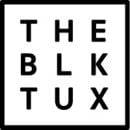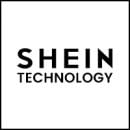Retail has come a long way in recent years. From the mass migration of brick-and-mortar stores to the internet (and now the metaverse), to the implementation of artificial intelligence and blockchain technology in the global supply chain, this industry has seen a lot of technological innovation. And with online sales steadily increasing every year, companies big and small are harnessing swaths of customer data in new and creative ways.
In short: Shopping has changed. And these are some companies at the forefront of the upheaval.
Some Innovative Retail Tech Companies
- Bespoke Post
- Boisson
- Card Kingdom
- Chewy
- eBay
- Faire
- Instacard
- Nate
- OneView Commerce
- Poshmark
- The RealReal
- Wayfair
Innovative Retail Tech Companies
Consumers can rent or buy suits and tuxedos through The Black Tux. The company’s website offers size recommendations based on information submitted by shoppers, and The Black Tux has a team of fit specialists who review each order. Shoppers also have the option of booking a free home try-on, or they can make an appointment at one of the Black Tux’s brick-and-mortar showrooms to view sample garments and ensure they’re getting the right fit.
LeafLink makes software solutions to support brands and retailers in the cannabis industry. The company operates an online marketplace brands of any size can use to set up a digital storefront so they can sell products wholesale to retailers. LeafLink also provides its customers with tools for payments, logistics, advertising and accessing data insights.
Grocery TV provides an in-store media network for grocery retailers across the U.S., with more than 21,000 displays in over 4,400 stores. The company's advertising platform reaches almost 70 million shoppers, helping brand marketers launch and manage effective digital advertising campaigns. By tailoring ad content based on factors like geographic location, Grocery TV enables brands to maximize customer engagement and retailers to boost their revenue.
Green Thumb Industries manufactures and distributes consumer packaged cannabis goods. The company’s portfolio of branded products includes &Shine, Beboe, Dogwalkers, Doctor Solomon’s, Good Green, incredibles and RYTHM. It also owns and operates RISE retail cannabis stores across the nation. Tech workers keep the business’ e-commerce website and digital stack running.
Leaf Home provides technology-enabled home improvement solutions, like gutter protection, home safety, stair lifts and water purification. The company is focused on enhancing safety, enjoyment and comfort for homeowners and their families. Headquartered in Hudson, Ohio, Leaf Home has over 200 locations across North America and employs over 4,000 workers.
SHEIN is a retail and manufacturing tech company that runs a global e-commerce network. The company uses on-demand manufacturing technology and an agile supply chain to provide affordable goods at scale. For example, its Center of Innovation for Garment Manufacturing focuses on developing technologies and strategies for lean, sustainable garment production.
With operations that span a dozen international offices, commercetools is known globally for its composable commerce solutions for companies that operate under business-to-consumer, direct-to-consumer and business-to-business models. Retail brands use its technology to optimize the online shopping experience and encourage customer loyalty.
Longtime pop culture and music-inspired retail fashion company Hot Topic successfully transitioned into e-commerce by leaning into retail tech like omnichannel analytics and cloud-based reporting. In business since 1989, the company transitioned from manual reporting into retail analytics processes that use automation and cloud-based real-time collaboration to streamline operations and radically reduce administrative labor.
Mirakl’s software solutions support online retail operations. For example, its Mirakl Catalog Platform gives businesses the tools to cut down on manual work when updating and expanding their digital product catalog. The company also offers Mirakl Target2Sell, which uses artificial intelligence to personalize product recommendations with the goal of improving conversions and revenue.
Sandbox VR sells immersive virtual reality experiences through retail locations around the world. Its proprietary technology enables “unprecedented realism and complete immersion” as groups of customers interact with virtual worlds. Sandbox VR’s gaming experiences range from futuristic, gladiator-style arena battle to a dragon-filled fantasy adventure.
Jaanuu makes fashion-forward medical apparel like scrubs and masks, finished with an antimicrobial coating to help keep healthcare workers safe and healthy. Founded by a practicing doctor, the company’s research team studied relevant physiology like body temperature, sweat and how the body moves while performing medical labor. Its product design is based on data gleaned from that research.
Mack Weldon is a direct-to-consumer lifestyle brand that makes high end men’s casual wear and activewear. It began as a digital native underwear startup, made waves for embedding silver technology used by NASA into boxer briefs and tees and grew into retail locations in high-end spaces like Manhattan’s Hudson Yards.
CarAdvise is a digital retail platform for automotive service and repair. It offers fleet pricing on service from a verified network of repair providers, allowing clients to price compare. It also notifies clients of when their vehicles need scheduled maintenance, offers an in-app diagnostic service to help clients assess what might be wrong with their vehicle and runs a chat line staffed by certified mechanics.
Cool girl retail brand Reformation started small as a vintage clothing shop, and now designs its own sustainable, transparent-supply-chain label of ready-to-wear women’s fashion. The company measures environmental impact on its internal RefScale, which shows how much CO2 and water is used for each piece of clothing compared to the industry standard. Relying on a weekly limited-run production model to minimize waste and optimize perceived exclusivity, Reformation is certified carbon neutral and is on track to be climate positive by 2025.
Juvo+ is an e-commerce company that creates and markets a wide range of consumer products, from toys and games to clothes. It trademarked the term Retail Science, which defines its data-first approach to serving the online consumer marketplace. Using a proprietary data engine AI called DaVinci to capture marketplace insights, the company employs data to drive product development and marketing.
Munchkin, Inc. makes consumer products for babies, toddlers and the parents who buy their stuff. Its product range includes products for feeding, bathing, travel, diapering, health and sleep, along with a nursing-parent support line. With over 300 patents to its name, Munchkin’s R&D is big on innovation in the parenting space.
Cox Enterprises owns Cox Automotive, which operates a family of brands – including Autotrader and Kelley Blue Book – that facilitate vehicle buying and selling. The company offers several technology and data-driven solutions for automotive retail, such as Esntial Commerce, a solution that uses AI and machine learning to deliver a personalized digital car buying experience.
Bespoke Post is an e-commerce platform that specializes in “under the radar” brands, as the company puts it. Through either one-off purchases or curated monthly subscription boxes, customers can buy goods ranging from clothing and shoes to camping equipment and furniture — all made by small and medium-sized businesses.
Boisson is a nonalcoholic beverage retailer, offering a selection of beverages from around the world. While the company does offer a wide variety of spirits, all of them are simply “inspired” by a liquor, be that gin, tequila, rum, and so on. It also sells alcohol-free wine, aperitifs, hemp-infused drinks, ciders and more. According to the company, Boisson was founded during the Covid-19 pandemic in response to the “widespread, underserved need for quality alternatives to alcohol.”
Dubbed the “Costco for millennials,” Boxed allows both individuals and businesses to buy pantry items in bulk, whether that be peanut butter, toilet paper or laundry detergent. The company delivers everywhere in the United States in as few as one to three business days, thanks to its advanced analytics technology and robotics-enabled fulfillment centers. It also allows customers to set up recurring orders for items they’ll always need, and offers a perks program called Boxed Up in order to redeem discounts, receive cash back on certain purchases and save on shipping costs.
Flowcode is a QR-code generator that bills itself as “the offline to online company,” serving clients that range from direct-to-consumer brands to Fortune 500 companies. When a client’s Flowcode QR code is scanned and the consumer is directed to the company’s landing page, proprietary data like conversions, actions, daily connection counts and data capture is routed back to the client company.
Brilliant Earth is reportedly one of the largest e-commerce jewelers in the United States and is considered to be a leading provider of ethically sourced diamonds. The diamond industry is notoriously violent and corrupt, often coinciding with war, human rights abuse, poverty and environmental degradation. Brilliant Earth seeks to combat this by integrating blockchain technology, specifically protocols, into its supply chain in order to securely track gemstone origin. The company claims to only work with suppliers who source diamonds that originate from specific mines or specific countries that have demonstrated a commitment to follow internationally recognized labor, trade and environmental standards. It also sells lab-grown and recycled diamonds, neither of which require new mining.
Card Kingdom is an online retailer focused on the selling and buying Magic: The Gathering cards, as well as tabletop gaming supplies such as dice, notebooks and playmats. The company also operates a game store and restaurant called Mox Boarding House, which has locations in Oregon, Arizona and Washington state.
Catch specializes in all things fishing. Its Mystery Tackle Box subscription service offers customers monthly shipments of fishing gear, and its Bait and Tackle shop is an online marketplace that sells everything from tackle and rods to travel mugs and waders. Catch also regularly collaborates with other companies to design and develop new products, and then bring them to market.
A division of packaging and labeling company CCL Industries, Checkpoint Systems provides a variety of software, hardware and cloud-based solutions for retailers around the world, with a specific focus on emergency alert systems and radio frequency identification technology. Commonly referred to as RFIDs, radio frequency identification uses electromagnetic fields in order to automatically identify and track specially designed tags that are attached to specific objects. Checkpoint uses this technology to provide retailers across cosmetics, clothing, pharmaceuticals and more with real-time intuitive data that can be used both in-store and throughout the supply chain.
Chewy is a popular online marketplace for pet products, offering everything from food and treats to bedding and prescription medication. And the items aren’t limited to dogs, cats and fish — the site has an entire selection of items for a variety of reptiles and even farm animals. The company also has a veterinarian-only offering called Practice Hub, which equips clinicians with the resources they need to set up their own e-commerce platform, where they can set their own prices with clients, create pre-approved prescriptions and more.
Cooler Screens has created an IoT-enabled commercial refrigerator that can be used in food retailers like grocery stores and gas stations, providing new kinds of marketing and merchandising experiences for consumers. These smart devices can be used to display advertisements, nutritional information about the food inside them, customer reviews and even a way for customers to pay for items digitally on the spot. They can also be useful to retailers themselves, providing features like restock notifications, real-time sales data, proximity sensors, price management and more through both edge and cloud computing. Cooler Screens says it never collects shoppers’ personal information, and claims to be the first digital retail platform to fully adopt and be certified for the Privacy by Design global industry framework.
Launched in 1995, eBay is one of the original disruptors of retail. It was among the first websites to really turn shopping on its head, providing a way for consumers to purchase whatever products they wanted online through auctions. The company has since become an e-commerce giant, connecting millions of buyers and sellers around the world. Lately, eBay has made a big push in artificial intelligence, using it to provide customer advice and recommendations, improve shipping and delivery times and more.
Faire is a business-to-business, or B2B, online marketplace, where small and medium-sized retailers can buy inventory wholesale. Products include jewelry, kids’ toys, common baking ingredients, gardening supplies and much more. The company also offers flexible payment terms, as well as curated offerings and recommendations.
FASHIONPHILE is a marketplace for secondhand luxury bags, jewelry, watches and other accessories. In general, the luxury fashion industry is no stranger to fakes, dupes and knock-offs. But to ensure the products listed on the site are genuine, the company says it has each item inspected by two “qualified authenticators” who specialize in specific brand names and are “thoroughly educated” in detecting fakes. They inspect the products to make sure the product’s details meet the manufacturer’s established standards of quality in everything from stitching to hardware to craftsmanship.
FIGS is a direct-to-consumer company that designs and sells apparel for medical professionals, including scrubs, lab coats, scrub caps and more. All the clothing is made with antimicrobial fabric and is designed to be cool and comfortable for long stretches of time. The company also has a philanthropic arm called Threads to Threads, through which it has donated hundreds of thousands of scrubs to healthcare workers around the world.
Logistics technology company Flexe aims to optimize the global distribution of goods by helping retail businesses streamline all of their fulfillment, distribution, same-day delivery and network capacity needs. This is mainly done through its cloud-based platform, which provides flexible, on-demand warehousing by connecting organizations that need space with those that have surplus space. Flexe’s enterprise solutions have become particularly sought-after in the wake of the Covid-19 pandemic, which brought on bottlenecks in the global supply chain that are still being felt today.
Although Harry’s is perhaps best known for its line of men’s razors and other grooming products, the company has become a major innovator in the retail space, serving as a sort of incubator and launchpoint for several direct-to-consumer brands. It formed Harry’s Labs in 2018, and has since rolled out Flamingo, a women’s body care brand, Cat Person, a cat care brand that launched in early 2020, and a new hair care line called Headquarters, which launched in 2021. Most recently, the company acquired D2C deodorant brand Lumē, following a $155 million fundraise that valued Harry’s at nearly $2 billion.
Co-founded by celebrity spouses Kristen Bell and Dax Shepard, Hello Bello sells all-natural, plant-based baby products, including diapers, lotion, vitamins, toys and more. Items can be bought individually or in monthly bundles, depending on the customer’s need, and can be shipped anywhere in the United States.
Instacart is one of the most popular grocery delivery companies, operating in more than 5,500 cities across North America. Through partnerships with chains like Costco, Publix and Jewel Osco, as well as local grocers and even big box retailers like Target and Lowe’s, Instacart makes it easy for customers to get anything they need or want delivered right to their door. Users can build shopping lists right on the website, and can get items delivered in as quickly as one hour.
Nate’s AI-powered platform has reimagined the entire online shopping experience, aggregating products from across the internet and making them available for purchase in one convenient location. Users can consolidate the items they want into lists on the app, and then click one button to purchase it all while AI handles all the checkout and shipping steps. Nate also has an embedded social media component, where friends and influencers can make recommendations and share ideas — eliminating targeted, algorithm-based suggestions that are so common in e-commerce. The company also claims it never shares customers’ payment information or shopping history with third parties. “I want to live in a world where my friends inspire me on what to buy and from where,” founder Albert Saniger told Built In in a 2021 interview. “And I want my data to be protected and owned by me, not by companies with incentives that are misaligned with mine.”
NTWRK is a livestream shopping platform where creatives and makers around the world can sell their products through daily product drops and live virtual events. First popularized mostly in Asian countries, livestream shopping and social commerce has become a common way for Gen Z and millennial consumers around the world to shop. Meanwhile, NTWRK is capitalizing on this burgeoning market, garnering investments from musician Drake, Live Nation, Goldman Sachs, and luxury brand Kerring, according to the company.
Described as an “experiential e-commerce platform,” Obsess creates three-dimensional, 360-degree virtual stores for retail websites, crafting both virtual and augmented reality shopping experiences for consumers that include realistic displays and music. Lately, the company has also been helping bring major brands like General Mills, Ralph Lauren and Tommy Hilfiger into the metaverse.
OneView Commerce aims to provide unity for retailers, combining both their in-store and digital experiences into one single transaction engine. The platform is cloud-native and offers an omnichannel customer experience, which allows users to easily keep track of customer history, orders and inventory, among other things. OneView also has a library of features, including mobile checkout and pickup and delivery options.
Perch is what is known as a roll-up company, meaning it acquires small, third-party brands that sell products on huge e-commerce sites like Amazon, and helps them streamline their operations by handling things like marketing and supply chain management. Third-party sellers make up the majority of Amazon’s gross merchandise value, which was estimated to be around $490 billion in 2021. As such, the acquisition and scaling of these businesses has become an immensely lucrative industry, of which Perch is among the leaders. “This is a sea change. People are changing how they shop, and consumer product companies are changing how they innovate,” Perch founder Chris Bell told Built In in a 2021 interview, adding that this space could be worth trillions of dollars eventually. “It’s the new way of shopping and it’s the new way of retail.”
Founded in 2011, Poshmark is an online marketplace where people can buy and sell their new and secondhand clothing, home decor and beauty products. Then, in January of 2023, the company was acquired by Naver, reportedly Korea’s largest internet company. Together, the organizations plan to use their individual strengths and resources to not only increases purchases and deepen user engagement on Poshmark, but also dip into the fast-growing livestream shopping space.
Profitero offers e-commerce analytics to more than 4,000 global brands, including giants like The Kraft Heinz Company and Adidas AG, allowing them to monitor what shoppers are viewing and buying online. The platform will track a given company’s sales, product reviews, search engine presence, promotions, traffic and more in order to give them a better sense of their online performance. It also tracks data from thousands of other retail websites to get an even better picture, and has several built-in tools for measuring Amazon metrics, specifically. In 2022 the company was acquired by Publicis Groupe, an advertising holding company based in Paris, for a reported $200 million, but continues to operate independently.
Provi is a platform that connects alcohol distributors and retailers. The alcohol retail and distribution process has always been fairly analog. A retailer (think bar or liquor store) would have to contact a specific distributor (Smirnoff or Jack Daniel’s, for example) and order the product over the phone or with a paper invoice, and then rinse and repeat for every company. Instead, Provi brings all those distributors to one place, making ordering wholesale as easy as online shopping. The service became especially popular amid the pandemic, when every facet of life had to go digital. Provi has since joined forces with Seven Fifty, another alcohol supply chain company, in order to form a new “unified and expanded” marketplace for the booze industry.
Squarespace makes it easy for anyone to design, develop and launch a website in a matter of minutes. Created largely with entrepreneurs and business-owners in mind, the platform has a wide variety of templates, fonts and color pallets to choose from, allowing users to build a site that matches their desired brand and purpose. On their custom sites, users can sell products, post blogs, book appointments and more. Squarespace also provides business owners with email campaigns and social media tools to help them grow their online presence.
Swiftly helps small and medium-sized businesses, particularly grocery stores, enhance their digital storefronts through various API integrations, including tools to establish loyalty programs, promotional offerings and ad campaigns — all of which allow the retailer to collect customer data, which in turn means they can create more customized online shopping experiences, targeted ads and so on. The goal is to help these businesses better compete with big box brands like Target and Walmart.
Tapestry is a holding company that owns several influential luxury brands, including Coach and Kate Spade New York. The company then implements various features and digital tools to elevate shoppers’ experience on these brands’ e-commerce sites. For instance, it implemented the Coach (Re)Loved program in response to the rising popularity of secondhand Coach bags, allowing the company to sell used bags directly on its own website.
The RealReal is an online marketplace for used luxury retail items, and says it employs more than 150 authenticators to make sure all the products sold on the site are legit. This is one of many tech companies claiming to be working towards a circular economy, in which consumers are encouraged to reuse and recycle rather than throw away. In retail, this often means buying secondhand, which has become increasingly popular among Gen Z and millennial shoppers.
Formerly known as GetUpside, Upside works to drive web traffic for businesses by giving consumers cash-back deals on common purchases like groceries, gas and meals. It accomplishes this through a combination of artificial intelligence and machine learning, which are used to track consumer transactions data and deliver personalized promotions for businesses big and small. In early 2022, the company announced a partnership with rideshare app Lyft, allowing drivers to earn cashback on gas, and soon after hit a $1.5 billion valuation.
When it comes to fast furniture, Wayfair has become a household name, selling a range of furniture across various styles and price points. Although this space comes with its fair share of controversy — mainly regarding its harmful environmental impact — Wayfair and other retailers like it have been gamechangers in the furniture and homegoods industry, allowing consumers to get couches, desks, chairs and more delivered to them in as few as a couple days. The company is also using artificial intelligence and augmented reality to bolster its e-commerce presence even more.
Zoro is an e-commerce company that allows customers to shop for business operations equipment. The marketplace platform allows users to search for, order and ship supplies and tools. Its features include products for job sectors that include school, office, safety and machining.
Ahold Delhaize USA has a family of grocery brands operating more than 2,000 stores throughout the eastern United States. The company is largely driven by the work of technology team members, which it says have “a focus on adaptable technology solutions, reusable design and a robust omnichannel strategy.”
Auror connects businesses with the organizations and people that hold the timely information needed to combat ORC, or Organized Retail Crime. It works with law enforcement and retailers to handle the groups that resell merchandise for billions of dollars every year. The company has teams throughout Canada, the United Kingdom, Australia, the United States and New Zealand.
Lowe’s is a network of more than 1,700 retail and outlet stores selling tools, appliances, furniture, paint, flooring and other home improvement goods. Lowe’s Innovation Labs experiments with emerging technologies, working on projects like the Lowe’s Style Studio, an immersive virtual kitchen design solution.
Ruggable runs an online platform that sells washable rugs in two pieces. The company says its rug covers are machine washable and can be put in the dryer or hung to dry. Customers who want to change their rug design can buy a new cover from Ruggable to fit over their existing rug pad. Ruggable also offers washable pet beds, pillows, bath mats and doormats.
Million Dollar Baby Co. designs and sells products for furnishing baby and toddler bedrooms. Its offerings cover everything from cribs and rockers to dressers. Million Dollar Baby Co. operates a family of brands that includes names like DaVinci, Nursery Works, Babyletto and Ubabub. The company integrates tech solutions into its operations to help ensure its delivering an optimized customer experience.
























































